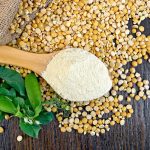
Contents
Is Gelatin Healthy? Benefits and Side Effects
Gelatin is obtained by boiling animal parts containing collagen, such as connective tissues, cartilage, skin, and bones. It offers numerous health benefits including support for muscles, gut, skin, bones, and joints.
In the mid-20th century, gelatin was commonly used in various recipes. Nowadays, it is mostly known as a sweet treat in small plastic cups. However, is gelatin truly healthy?
Gelatin serves multiple purposes beyond being a jiggly dessert. It is widely used in the food, pharmaceutical, cosmetic, and even photography industries.
Derived from collagen-rich animal parts, gelatin can be sourced from various animals, although some are more suitable than others. Pigs and cows are the primary sources, but religious and cultural restrictions have also led to the emergence of marine-based gelatin with limited effectiveness.
Gelatin in Food
In the food industry, gelatin is utilized to enhance the texture and stability of products like jelly, marshmallows, ice cream, and other sweets.
Gelatin in Pharmaceuticals
Pharmaceutical companies take advantage of gelatin’s unique properties. Gel capsules, for instance, are used to control drug release after ingestion.
Gelatin in Cosmetics
Gelatin is also employed in the cosmetic industry to provide products with the desired consistency. It can be found in creams, foaming sprays, and bath salts.
Gelatin Nutrition: Is it Beneficial for Health?
Gelatin’s nutritional content depends on the source and manufacturing process. However, it is generally rich in protein, containing all essential amino acids except tryptophan.
Gelatin Nutritional Facts
Gelatin is a simple product consisting of calories, protein, and sodium. A 7-gram serving typically contains around 30 calories, with most of the calories derived from protein. Gelatin is primarily protein, with an average of 1 gram of protein per gram of gelatin.
Some gelatin preparations may contain small amounts of sodium, a natural byproduct of the animal parts used. The sodium content is usually around 10 milligrams per 7-gram serving.
Nutrition in Flavored Gelatin
Flavored gelatin available in stores often contains sugar and other ingredients that are not as healthy as plain gelatin. If you enjoy gelatin treats, it’s better to make them at home to have control over the ingredients.
Health Benefits of Gelatin
Gelatin’s potential health benefits are primarily associated with collagen.
Support for Injury Prevention and Muscle Building
A study showed that gelatin supplements improved collagen content and synthesis in participants, leading to injury prevention and enhanced tissue repair. This suggests that incorporating gelatin into an exercise program can be beneficial.
Gut Support
Gelatin tannates have shown promise in the treatment of chronic diarrhea, acute gastroenteritis, and other gastrointestinal conditions. Further studies are needed to confirm these findings.
Enhanced Skin Health
Collagen is crucial for healthy skin. Studies indicate that collagen supplements, including gelatin, can improve skin elasticity, moisture, and smoothness.
Bone and Joint Support
Collagen plays a vital role in the formation of bones, muscles, and connective tissue. Research indicates that collagen hydrolysate supplements, like gelatin, can reduce pain and improve function in individuals with arthritis.
Potential Drawbacks of Gelatin Consumption
Eating gelatin does not generally cause immediate side effects, but excessive consumption can pose risks.
Protein Overload
Gelatin is protein-rich, and prolonged excessive protein intake can lead to various health problems, including bone disorders, kidney issues, increased cancer risk, liver disorders, and heart disease.
Unhealthy Flavored Gelatin
Flavored gelatin available in stores typically has lower protein content compared to plain gelatin. These products often contain higher amounts of sugar, sodium, and other ingredients, making them less healthy to consume.
Not a Substitute for Healthy Habits
Gelatin and collagen should not replace essential health habits such as sleep, diet, and exercise. These behaviors should be prioritized for optimal well-being.
Simple Nutrition
While gelatin is sugar-free and fat-free, it cannot provide all the necessary nutrients. It is important to obtain essential nutrients from a variety of sources rather than relying solely on gelatin, which cannot serve as a low-calorie, high-protein meal replacement.
QUESTION
Gelatin Alternatives
If you prefer to avoid traditional gelatin due to dietary, cultural, or religious reasons, numerous plant-based alternatives are available.
Agar
Agar is derived from ocean algae and serves as a gelatin substitute in various industries, including food, medical, photography, cosmetics, and textiles.
While there is limited evidence on the health benefits of agar, consuming it in moderation generally poses no significant risks aside from potential gastrointestinal side effects like diarrhea or flatulence.
Pectin
Pectin is a plant-based gelatin substitute commonly used in the food industry as an emulsifier and stabilizer. It provides the characteristic texture to jellies and jams.
Carrageenan
Carrageenan is extracted from red algae and primarily employed as a food stabilizer. It can be used as a substitute for gelatin, although more research is needed to determine its benefits and potential side effects.
Conclusion on Gelatin
Gelatin can be part of a healthy diet depending on how it is consumed. Gelatin cups loaded with sugar do not offer the anticipated benefits. On the other hand, making gelatin snacks with wholesome ingredients can be a simple way to incorporate collagen into your diet and reduce the uncertainty associated with collagen supplements.
Gelatin is not harmful but should not be considered a superfood. It should not replace healthy habits that can provide similar benefits.
References:
– Harvard T.H. Chan School of Public Health: "Collagen."
– Marine Drugs: "Cosmetic, Biomedical and Pharmaceutical Applications of Fish Gelatin/Hydrolysates."
– Molecules: "Gelatin as a Photosensitive Material."
– PubChem: "Agar (Compound)", "Carrageenan (Compound)", "Pectin (Compound)"
– U.S. Department of Agriculture: "GELATIN," "Gelatin dessert," "UNFLAVORED GELATIN."


